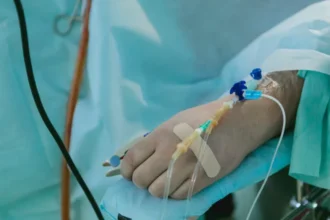You don’t need a sad violin or a motivational poster right now. You need a clear, honest take on what it’s like the first time you go through rehab for alcohol. It’s scary, sure. It’s awkward. It’s also, in many moments, boring. You’ll find yourself fighting the urge to leave, trying not to laugh at some of the cheesier group activities, and you might wonder if you’re even “bad enough” to be there. And yet, that first stay could be the moment you finally start living like you’re meant to, even if you can’t see that from where you’re sitting today.
Let’s walk through what really happens so you can show up ready, nerves and all.
Walking in feels like landing on another planet
Your first day feels like getting dropped in a foreign country without Google Translate. You’ll hand over your phone, which will sting, and your bags get checked for contraband, including that stash of “just in case” mini vodka bottles you thought you might sneak. You’ll meet staff who speak in calm tones, using words like detox, intake, community.
Your body might feel shaky, and your brain will spin with what-ifs. Did you lock your car? Who’s feeding the cat? Can you really do this? You’ll probably want to bolt within the first hour. Most people do.
But the day moves fast. Paperwork, vitals, maybe a urinalysis. You’ll get shown around, maybe meet a roommate who’s already been there a week and thinks they’re basically the mayor now. You’ll notice the quiet hum of coffee brewing somewhere and the soft clatter of people moving around in slippers. Everyone’s trying to keep it together, just like you.
You don’t have to pretend you’re fine. You’re not fine. That’s why you’re there. You’re allowed to feel uncomfortable, out of place, and suspicious that none of this will work.
Detox isn’t just about sweating it out
If you’re physically dependent on alcohol, you’ll start with detox, which can be medical or social, depending on your situation. You might get meds to help with shakes, sweats, nausea, or the restless panic that comes from your brain suddenly missing its best frenemy.
Some days will feel long, especially in the middle of the night when you can’t sleep and the walls feel close. But there will be nurses checking on you, and you’ll realize you’re not alone in the dark. You’ll drink electrolytes, eat small meals even if you don’t want to, and wonder if you’ll ever feel like a human again.
The thing about detox is it’s often less dramatic than your brain expects. You might have moments of clarity you didn’t see coming, a weird sort of lightness as the alcohol clears out. You might cry over nothing, or everything, or both. This is all part of your body finding its baseline again.
You’ll start to see how much you were drinking to stop feeling, only now you’ll be feeling everything at once, raw and sharp. It’s messy but necessary, and it’s the first time in a long time you’re actually facing yourself without a drink in your hand.
Group therapy is awkward until it isn’t
You’ll find yourself in circles of folding chairs, coffee in hand, listening to people share stories that bounce between heartbreak and dark humour. Some people are there for the third or fourth time, and you’ll feel the heaviness of that. Some are younger than you’d expect, others much older, each with a version of the same story: alcohol stopped being fun and started being the only thing that mattered.
You’ll be asked to share, and you don’t have to spill your life story on day one. But when you do speak, even just a little, you’ll see heads nod, and you’ll hear “same” from across the circle. The shame you’ve been carrying might loosen its grip for a moment.
There will be therapy sessions where you get mad, sessions where you roll your eyes, and sessions where something clicks so hard you can’t unhear it. You’ll learn about triggers, coping skills, the difference between wanting a drink and needing one, and how to ride out cravings without pouring a drink.
There’s a strange comfort in group therapy. It reminds you you’re not some rare broken thing. You’re just a person with an illness that likes to hide itself in silence.
You’ll find a rhythm you didn’t expect
A few days in, you’ll find yourself settling into a routine. Wake up, breakfast, group, one-on-one counselling, lunch, maybe some downtime, then more group or activities. There might be art therapy, yoga, mindfulness, or journaling prompts you’ll initially hate but might warm up to.
Some afternoons will feel endless, others will pass in a blink. You’ll have moments where you feel like you’re floating outside yourself, seeing your life with fresh eyes, unsure what comes next but aware that you’re alive, really alive.
In the middle of all this, you’ll hear people talk about modern addiction treatment approaches, how it’s not just about willpower but about addressing the why behind the drinking, the patterns in your brain and body that keep pulling you back to the bottle. You’ll start to see your drinking not as a moral failing but as something that made sense at one time, even if it’s destroying you now.
You’ll meet people who are funny and kind, people who are guarded and angry, people who are fighting for their lives. It’s a mix of personalities you’d never choose, but you’ll find yourself caring about them. You’ll see them care about you, even if they don’t know your last name.
The exit plan matters more than you think
As your discharge day approaches, you’ll notice your anxiety climbing again. What happens when you leave? Will you actually stay sober? What if you don’t?
This is where your exit plan becomes real. You’ll work with your counsellor on what comes next: outpatient therapy, support groups, possibly a sober living home if you’re not ready to head straight back to your old environment. You’ll be encouraged to build a network of people who get it, people who won’t tell you to “just have one” at dinner.
If you’ve ever rolled your eyes at phrases like aftercare, here’s where you realize it’s not a cliché. It’s a lifeline. You’ll need structure, accountability, and connection when you step back into your life, where bills, work stress, and that bar on the corner are still waiting.
You might hear about sober living in Indiana, Virginia or anywhere in between, places where you can ease back into life without white-knuckling it alone in your apartment. Don’t dismiss these options just because your pride says you should be “fixed” now. Recovery isn’t a switch you flip on the way out. It’s a process that keeps unfolding, and having support on the outside can make the difference between staying sober and slipping back into old patterns.
Worth it
There’s nothing glamorous about rehab, but there’s something deeply human about it. It’s where you’ll learn you don’t have to fight alone. It’s where you’ll see your own strength for the first time in a long time, buried under all that hurt and fear. It’s where you’ll find out you’re still here, and you still matter.
And that’s worth it.
Adam Mulligan, a psychology graduate from the University of Hertfordshire, has a keen interest in the fields of mental health, wellness, and lifestyle.








